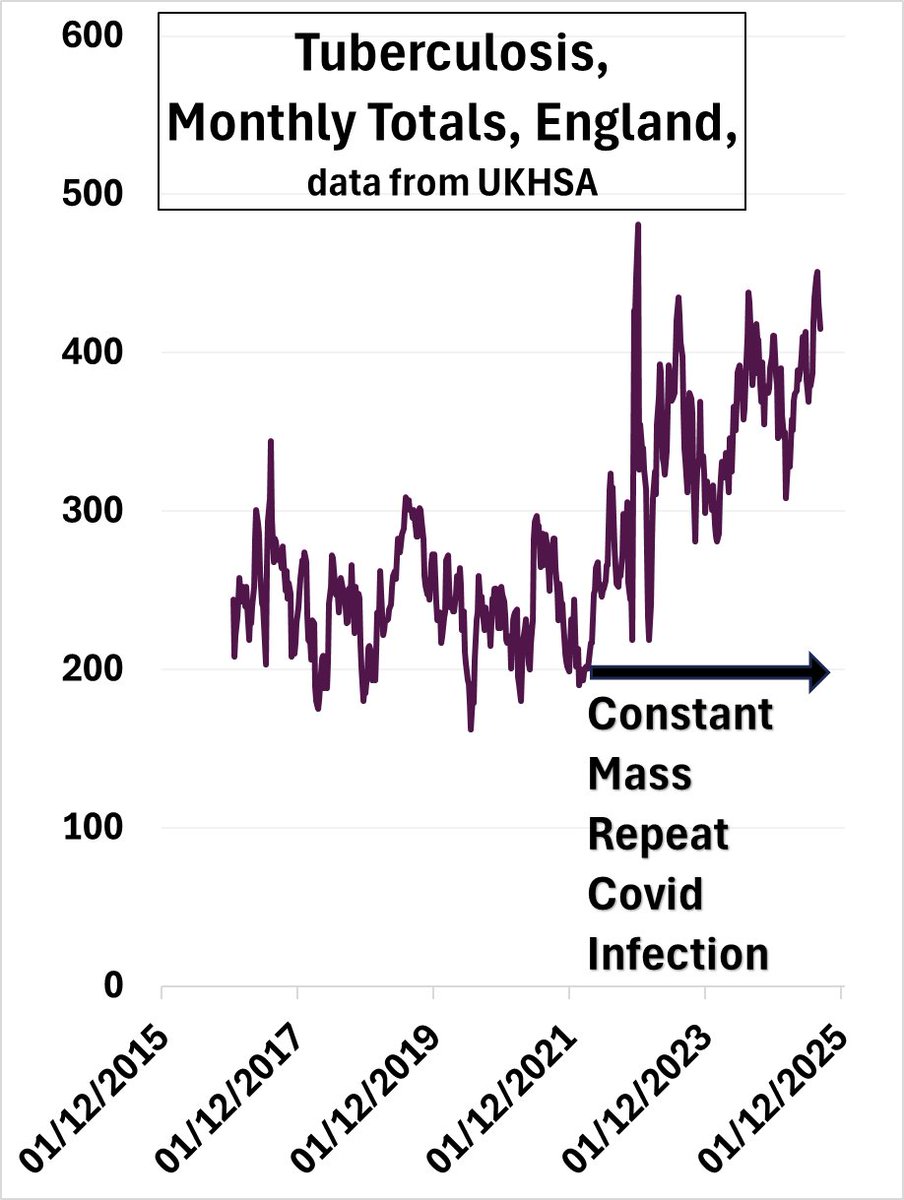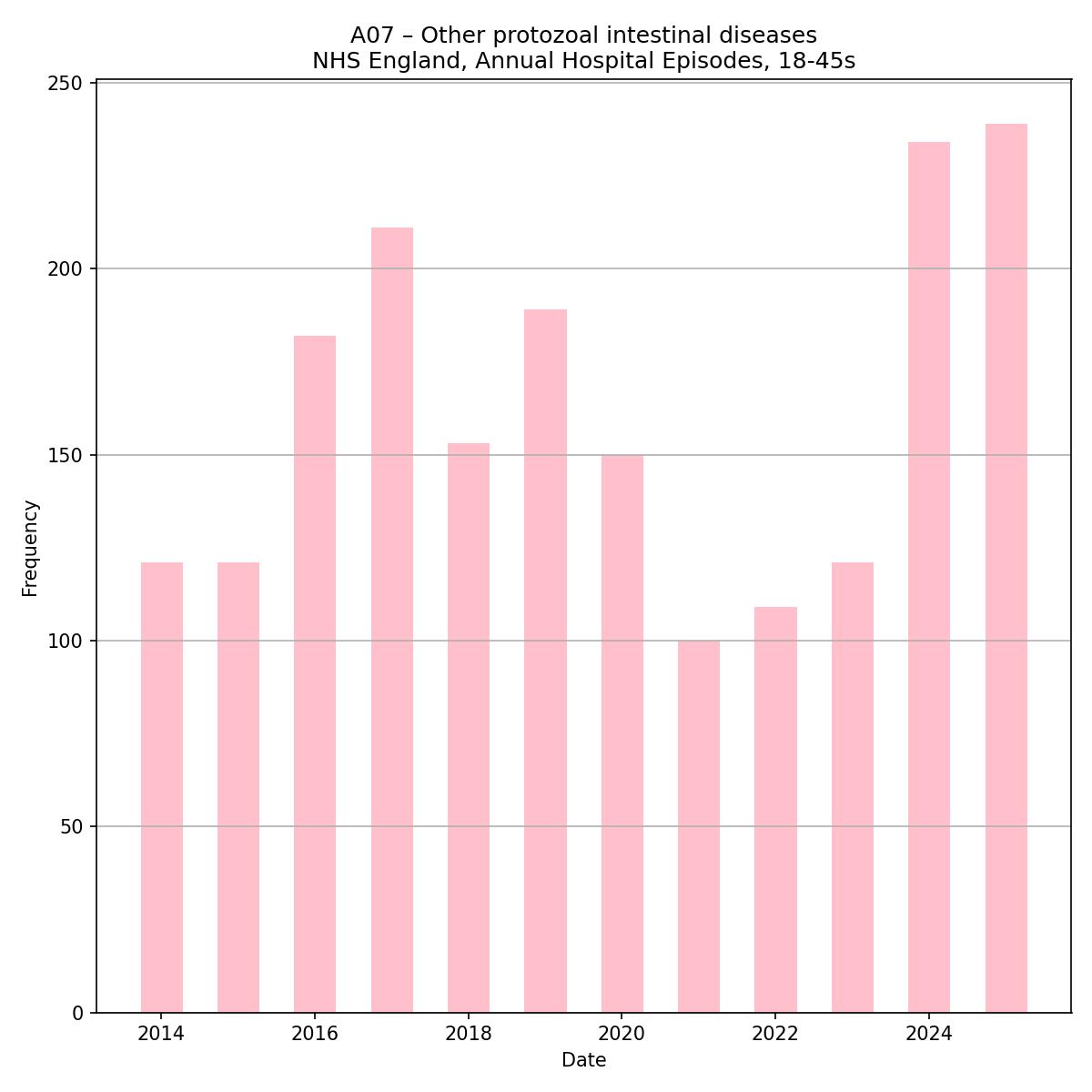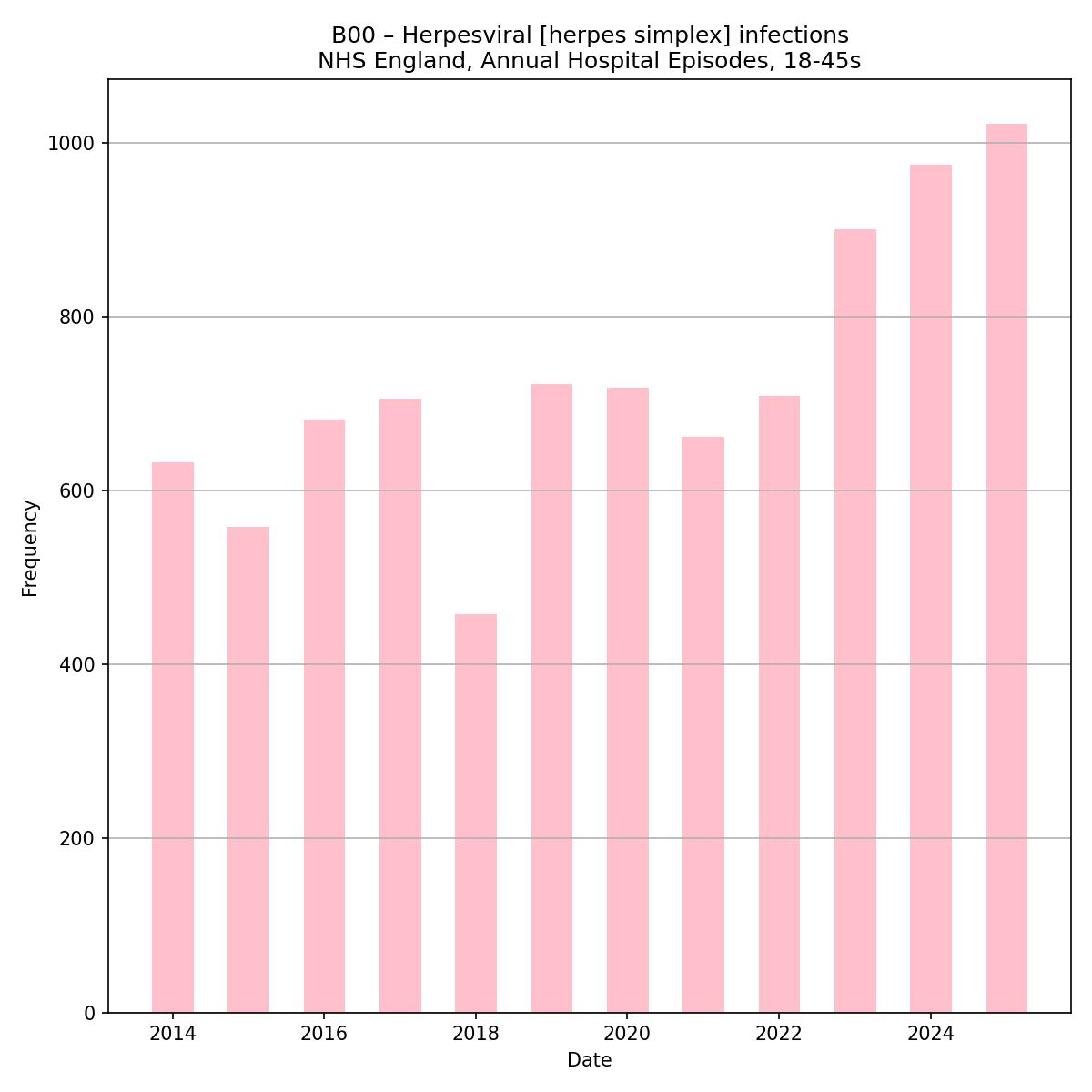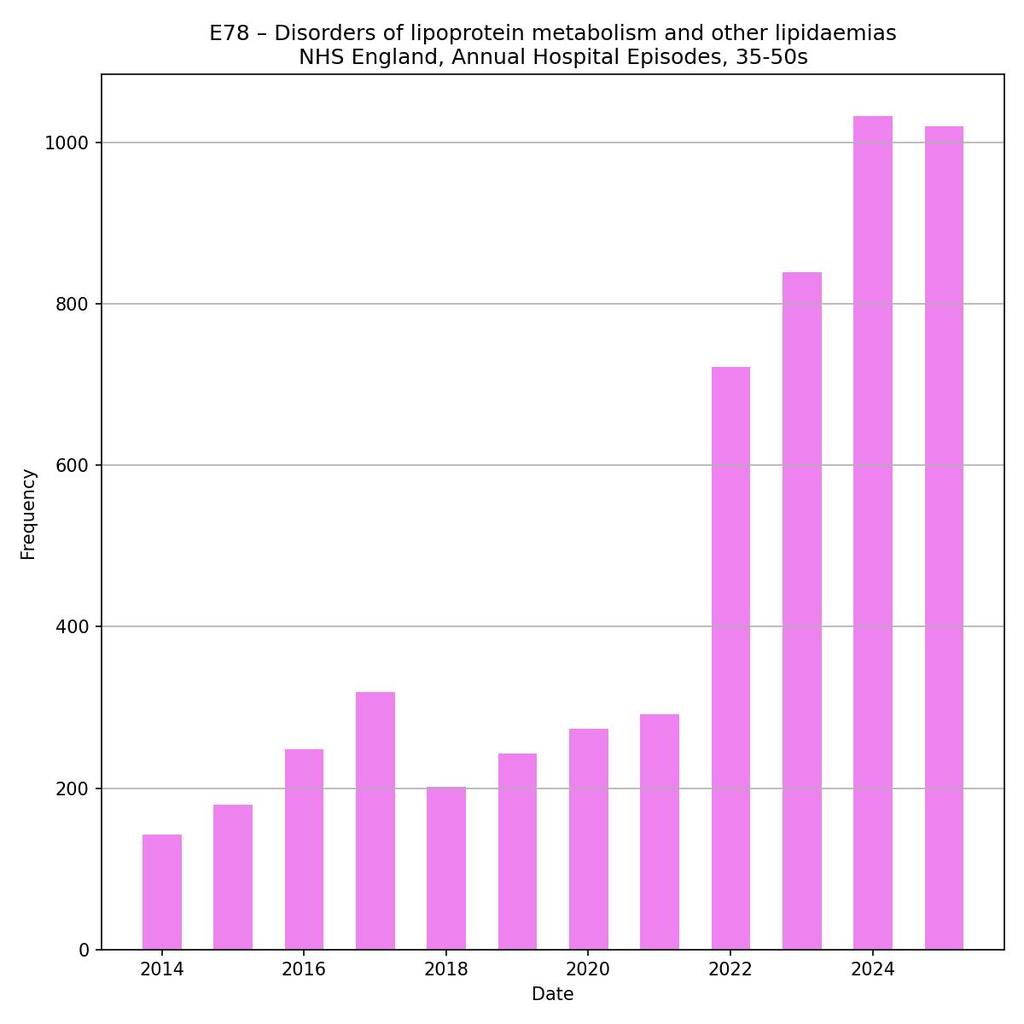You would not believe how many times I have started writing this thread and deleted it:
🚨Do Covid infections make you vulnerable to other infections, and if so - how, and for how long, and is it getting worse.
🚨Do Covid infections make you vulnerable to other infections, and if so - how, and for how long, and is it getting worse.
The reason I keep getting started and then delete it is that the subject is *huge*.
Just absolutely enormous.
Just absolutely enormous.
But I'd like to pull some data together in one place and ask some questions and post some thoughts.
I think, sadly, the first thing to do is deal with some of the immediate objections to the idea that Covid makes you more vulnerable to other infections...
Some people say "If it really damaged immunity, we’d all be constantly sick."
Well.
Have you not seen social media these last two years?
Have you not seen sickness absence data?

Well.
Have you not seen social media these last two years?
Have you not seen sickness absence data?
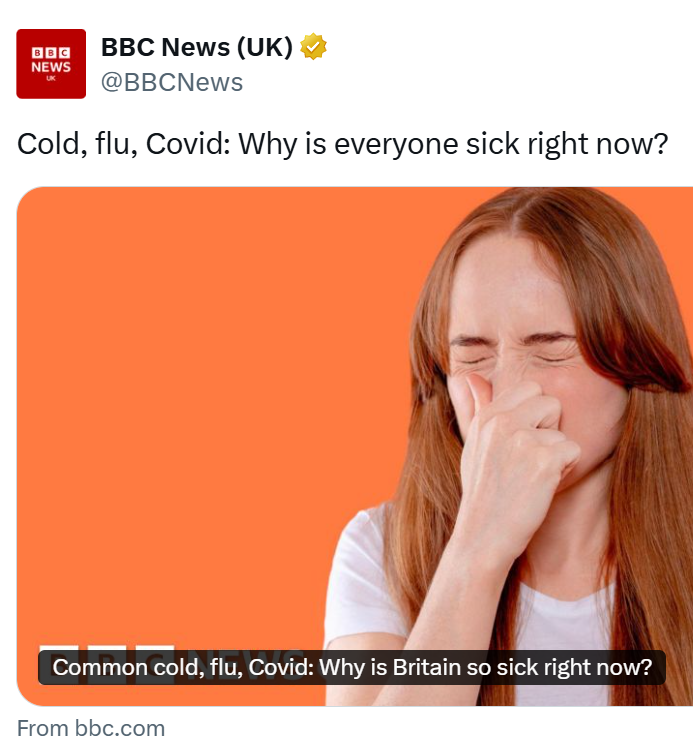

But there's also a big underlying misunderstanding in that question.
"If it really damaged immunity, we’d all be constantly sick."
No, actually, that's not how damaged immunity works.
"If it really damaged immunity, we’d all be constantly sick."
No, actually, that's not how damaged immunity works.
If a lot of people's immunity was damaged all at the same time, you wouldn't necessarily get every pathogen exploiting them all at the same time.
You might get one pathogen exploiting them one year.
Then another the next.
Then another the next.
Then another the next.
Then another the next.
Almost like this.
A massive wave of strep A one winter.
Then a massive wave of Mycoplasma Pneumoniae the next.
Then a massive wave of Whooping Cough the next.
A massive wave of strep A one winter.
Then a massive wave of Mycoplasma Pneumoniae the next.
Then a massive wave of Whooping Cough the next.

Each winter, a different bacterial pathogen finding its gap in a population made newly vulnerable, I think.
There's a confluence of your vulnerability to the pathogen, and the pathogen's prevalence, and that creates the unhappy situation above.
But is this all caused by Covid infections?
Well, the theory is all there - Covid infections can affect your ability to fight infection in multiple ways.
Well, the theory is all there - Covid infections can affect your ability to fight infection in multiple ways.
But does it do that more than other infections like flu, and can that be seen in statistics?
Well, the UKHSA published this data this year.
Secondary infections after flu and after Covid.



Secondary infections after flu and after Covid.
https://x.com/1goodtern/status/1908232027939160522

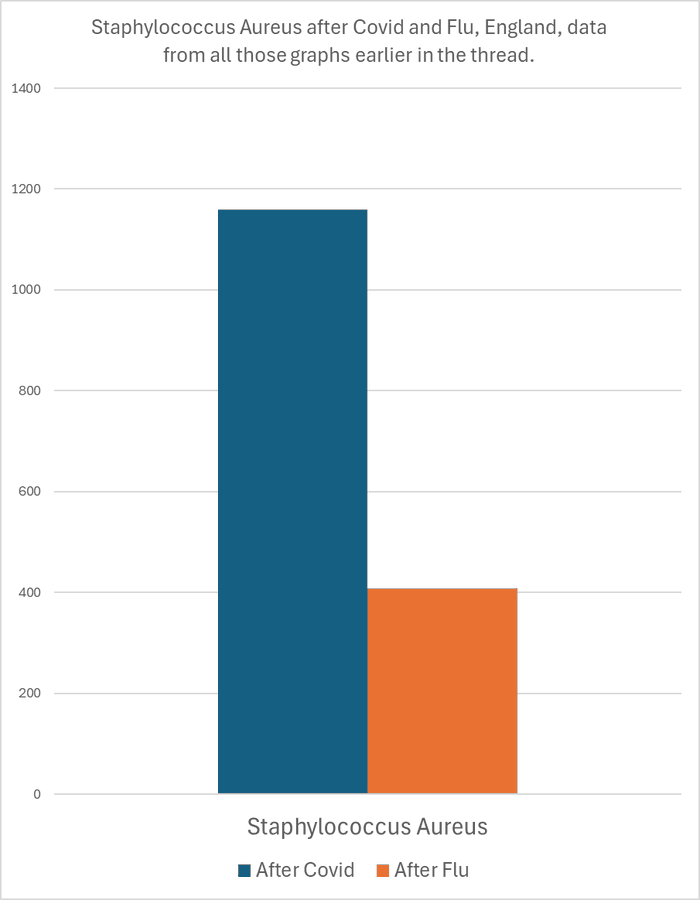

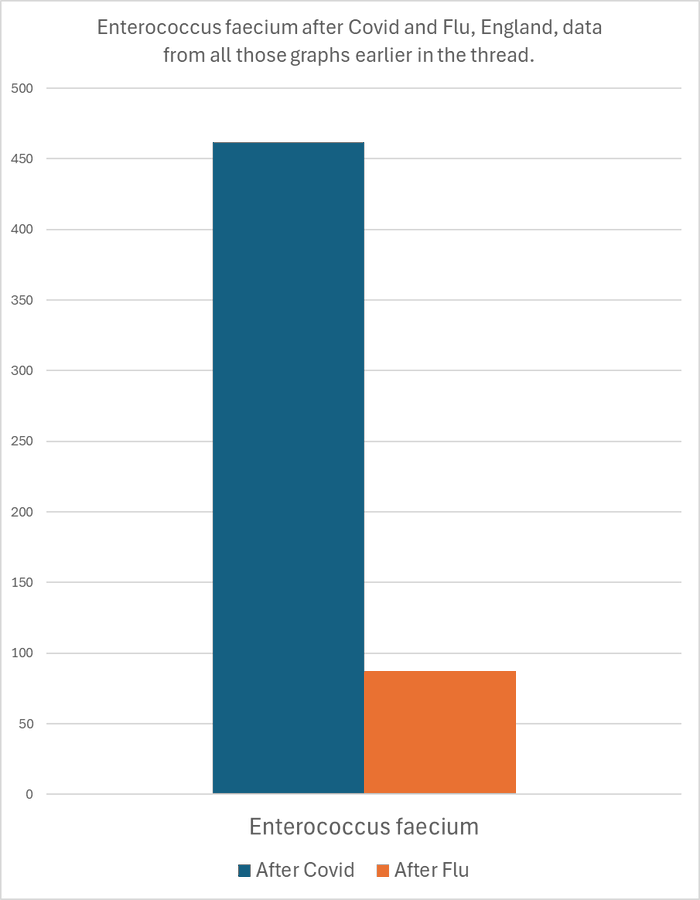
The data they published made it look like Covid was causing far more secondary infections than Flu - but those were only the infections that came *straight after* the covid infection.
Which does make me wonder whether a bacterium will exploit that again here this winter.
But we've also had massive increases in other bacteria (including drug resistant ones) and viruses recently too.
Polyomaviruses, some hepatitises, measles has had a massive jump.
Polyomaviruses, some hepatitises, measles has had a massive jump.
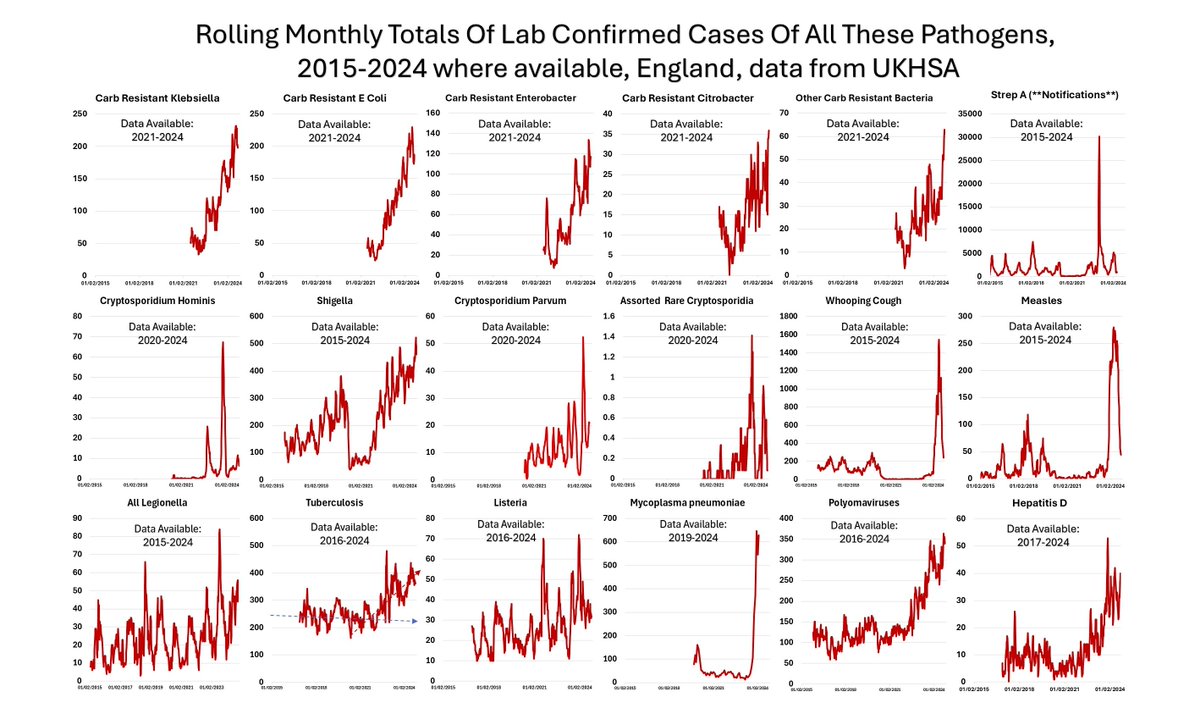
The cough and flu burden has been *worsening* the last three years.
Here's sickness absence among doctors for cold cough flu since 2019:
Here's sickness absence among doctors for cold cough flu since 2019:

There is a progressively worsening situation going on.
Trends that had been static for a decade or longer are now *climbing*.
Trends that had been static for a decade or longer are now *climbing*.
Another objection to this idea that repeat covid infections make us vulnerable to other infections is that it's too horrible to contemplate now that we've all been infected.
Except *stopping catching it repeatedly* may be beneficial.
Except *stopping catching it repeatedly* may be beneficial.
If it takes you a year for your bank balance to recover after you take an expensive holiday, but you go on two expensive holidays a year, then your bank balance never recovers.
If Covid infection damages your ability to fight off other infections, and most people gradually recover that ability over the course of a year... but they catch it twice a year... then what does that do overall?
And your immune system has *so many facets*.
All of them are *physical* and *mechanical*, but you might think of some of them as more physical or mechanical than others.
For example.
You have cells with tiny hairs in your lungs.
They help pass foreign objects caught in the mucus in your lungs up and out so they don't infect you.
You have cells with tiny hairs in your lungs.
They help pass foreign objects caught in the mucus in your lungs up and out so they don't infect you.
Covid infects those cells and kills them, so your body has to replace them.
So you have an extended period after infection where your body is less able to get rid of foreign bodies in your lungs. From bacteria to traffic pollution to woodburner smoke to silicon dust.
So you have an extended period after infection where your body is less able to get rid of foreign bodies in your lungs. From bacteria to traffic pollution to woodburner smoke to silicon dust.
That's a very *mechanical* problem.
It might not even be what you consider to be your 'immune system'.
It might not even be what you consider to be your 'immune system'.
But what if repeat covid infections are making the 'mucociliary escalator' increasingly damaged?
It's one of your absolutely front line defences.
What might it look like if millions of people had that damage?
Maybe this.
What might it look like if millions of people had that damage?
Maybe this.
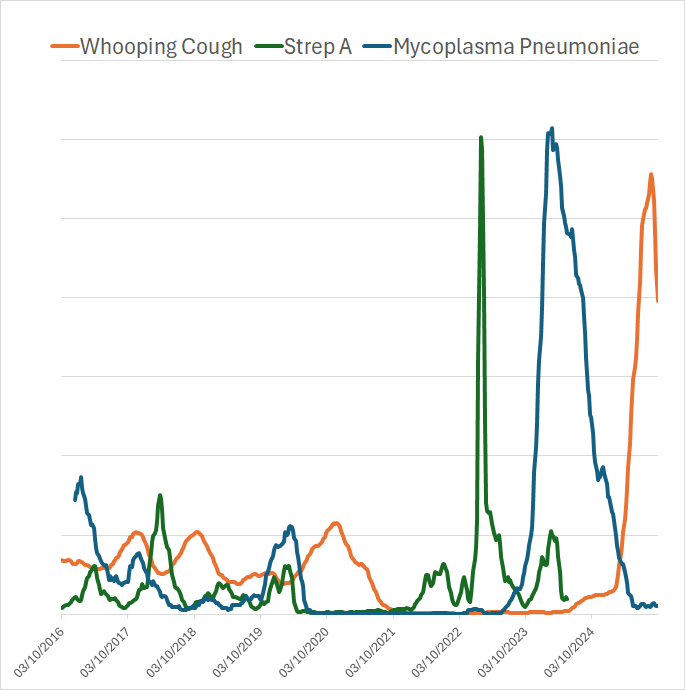
What might it look like if Covid infections damaged the defence mechanisms in our guts?
(and it does. oh how it does)
In fact, Covid variants have developed a greater ability to cause *persistent infections* in the gut mucosa, the wet linings of your digestive system.
Those persistent infections can leave several defence systems permanently dysfunctional, making people more vulnerable to...
Back to lungs again...
People are so much more vulnerable now to Legionella.
Flipping legionella man.
People are so much more vulnerable now to Legionella.
Flipping legionella man.

And then into your bloodstream... and brain...
I sincerely hope that this one isn't this winter's breakout bacterium.
Neisseria Meningitidis.
I sincerely hope that this one isn't this winter's breakout bacterium.
Neisseria Meningitidis.

One of the huge huge heavy hitters:
TB infections.
It's literally one of the defining features of immunodefiency.



TB infections.
It's literally one of the defining features of immunodefiency.
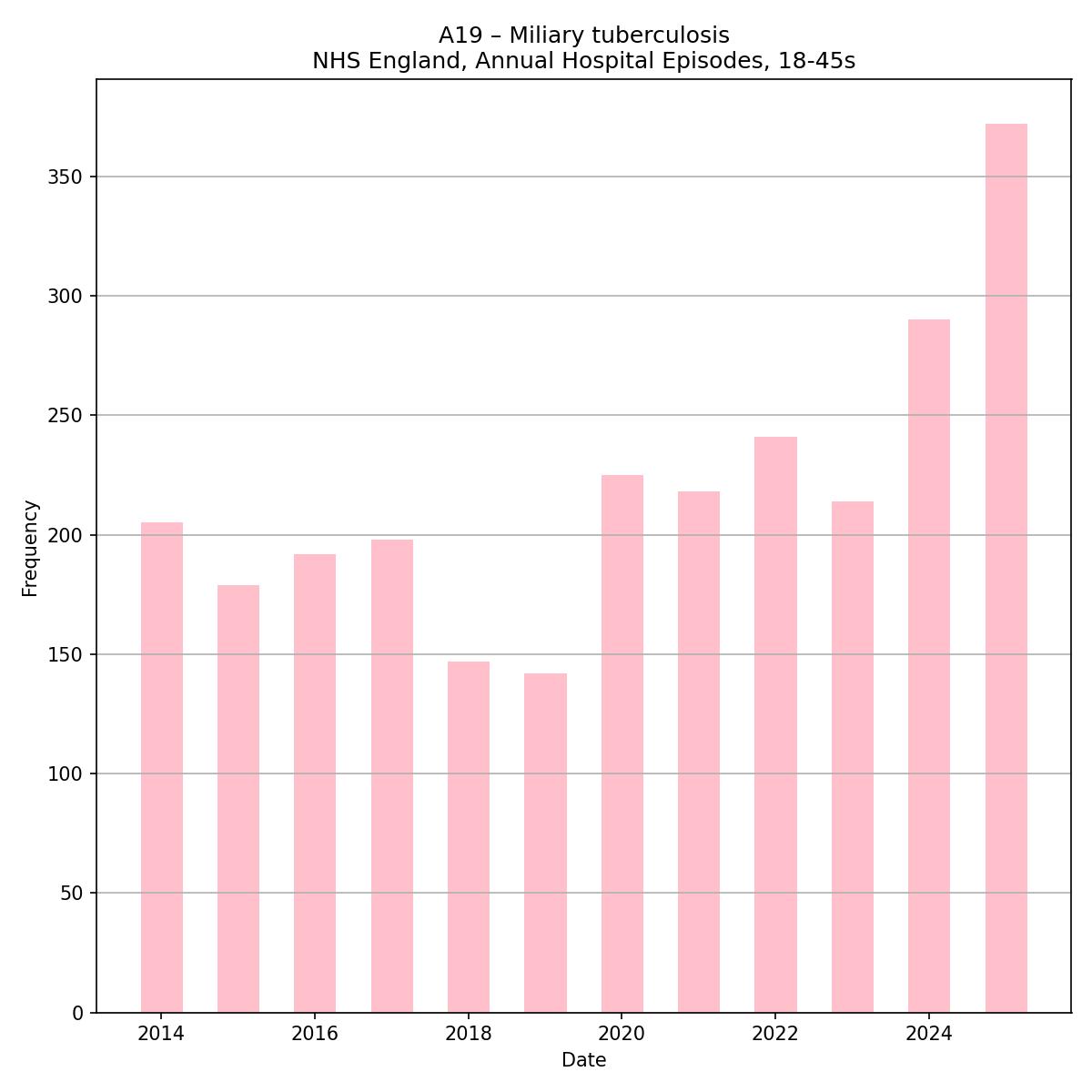
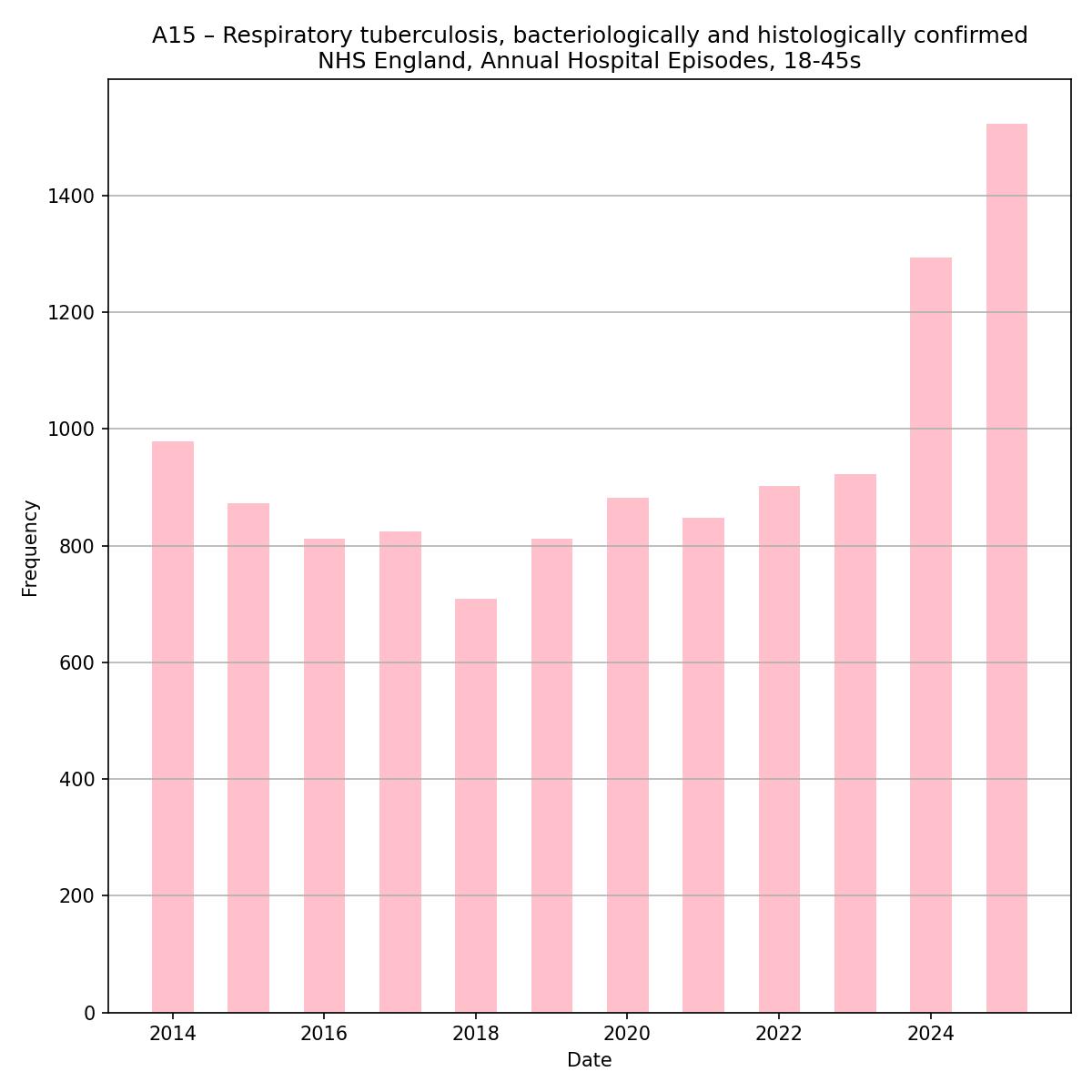


Are things getting worse?
Yes.
Yes.
I genuinely don't understand how people can dismiss this data, seen across multiple pathogens consistently for five years, for any other reason than pure denial.
A few of the pathogen highlights from the last couple of years as they appear in English hospital episode statistics for *young* adults.
Typhoid and paratyphoid
Other salmonella
Shigellosis
Other mycobacteria



Typhoid and paratyphoid
Other salmonella
Shigellosis
Other mycobacteria
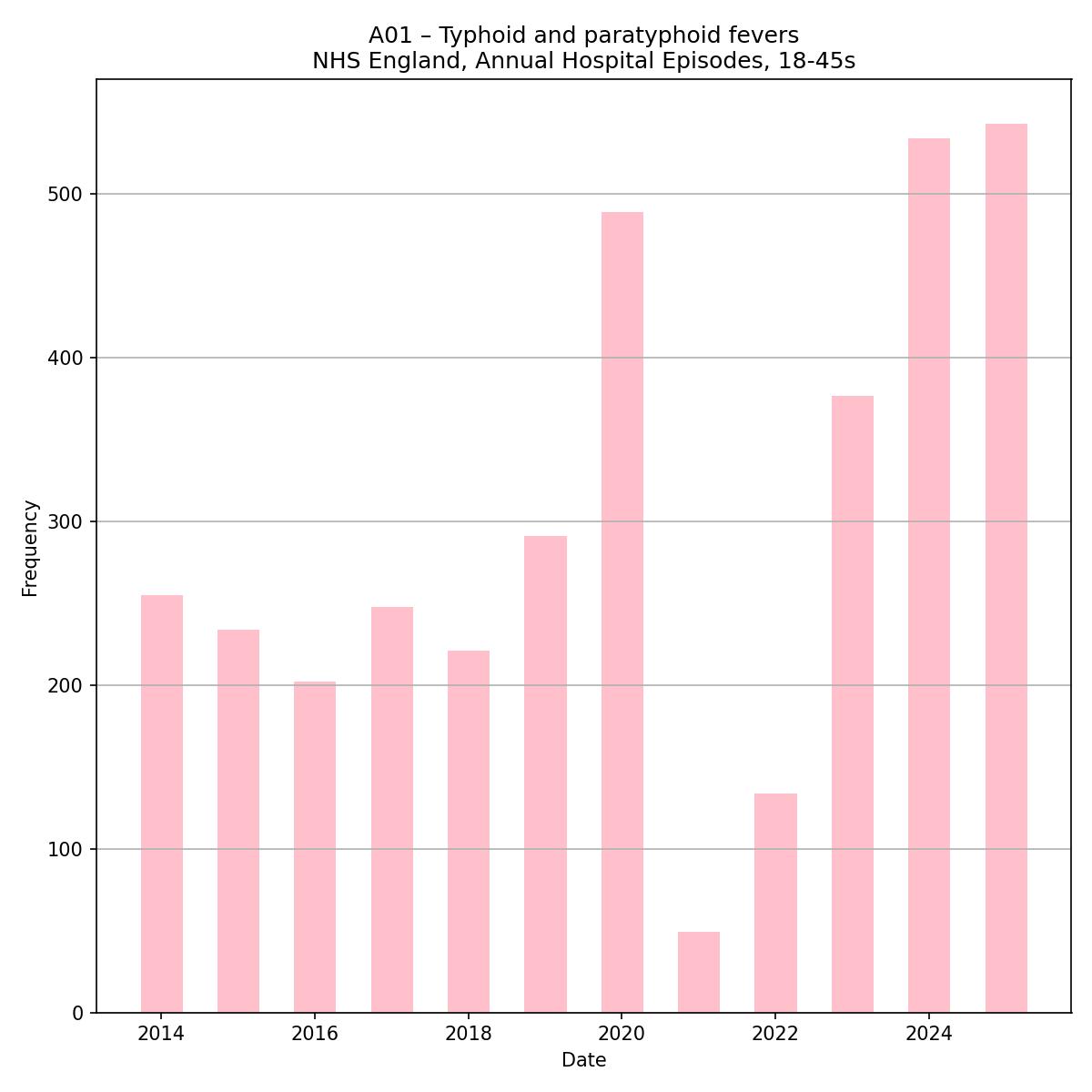
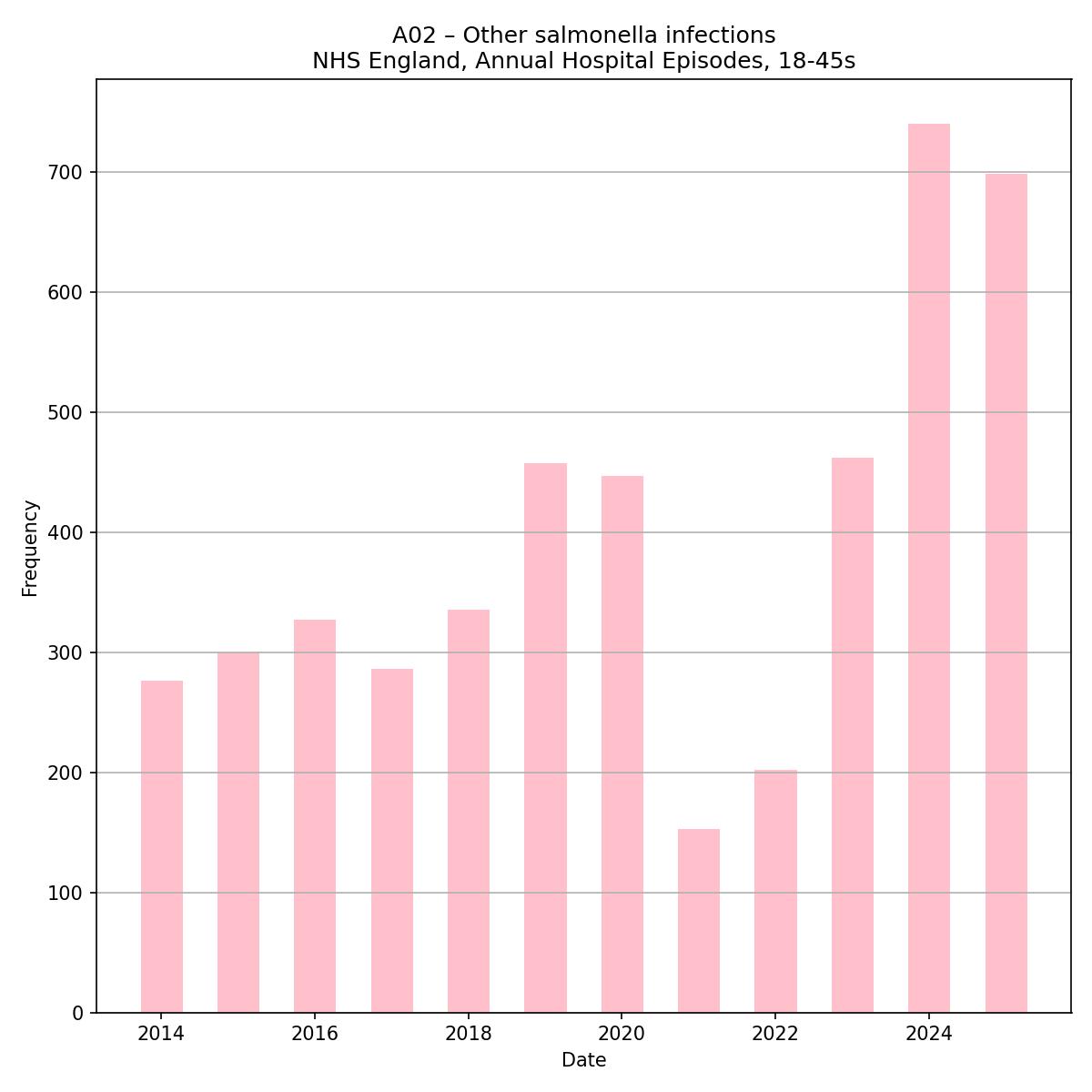


We're into a new era of increased sickness.
• • •
Missing some Tweet in this thread? You can try to
force a refresh





